English as a Second Language, Level 2, ESL Courses,Open (ESLBO)


-
Name:English as a Second Language, Level 2, ESL Courses,Open (ESLBO)
-
Grade:ESL Courses
-
Prereq:None
-
Code:ESLBO
-
Type:Open
-
Credit Value:1
-
Develop Date:2021-04-01
-
Course Price:CAD $1300
-
Status:Active
Course Description:
This course extends students’ listening, speaking, reading, and writing skills in English for everyday and academic purposes. Students will participate in conversations in structured situations on a variety of familiar and new topics; read a variety of texts designed or adapted for English language learners; expand their knowledge of English grammatical structures and sentence patterns; and link English sentences to compose paragraphs. The course also supports students’ continuing adaptation to the Ontario school system by expanding their knowledge of diversity in their new province and country.
Aims and Objectives:
- To enable the learner to communicate effectively and appropriately in a real-life situation.
- To use English effectively for study purposes across the curriculum.
- To develop an interest in and appreciation of Literature.
- To develop and integrate the use of the four language skills i.e. Reading, Listening, Speaking and Writing.
- To revise and reinforce structure already learned.
- Understand the total content and underlying meaning in the context.
- Follow the sequence of ideas, facts, etc.
- Locate significant points and features.
- Identify and understand phrase or sentence groups.
- Draw inferences.
- Predict outcome.
- Grasp the meaning of words and sentences.
- Acquire the ability to use a suitable dictionary.
- Understand labels, simple notices and written instructions.
- Consult sources of information such as timetables, catalogs and brochures, charts, graphs, advertisements, pictures, etc.
- Form the habit of reading for pleasure and for information.
- Develop correct reading habits, silently, extensively and intensively.
- Comprehend material other than the prescribed text.
- Comment on the passages read.
- Understand the meaning of words, phrases and sentences in context.
- Understand statements, questions, instructions, and commands.
- Grasp the substance and central idea of what is heard.
- Pronounce English correctly and intelligibly.
- Use appropriate word stress, sentence stress and elementary intonation patterns.
- Speak intelligibly while making statements, asking a question, giving instructions and commands, reporting events.
- Narrate simple experiences and series of events to convey their essence and intention.
- Describe accurately what he/she observes and experiences.
- Converse in familiar social situations.
- Use polite expressions in appropriate ways e.g. Excuse me, I beg your pardon etc.
- Master the Mechanics of writing; the use of correct punctuation marks and capital letters.
- Spell words correctly.
- Write neatly and legibly with reasonable speed.
- Use appropriate vocabulary.
- Use correct grammatical items.
- Write coherently in more than one paragraph.
- Complete accurately and fluently semi-controlled compositions like stories, events and processes etc.
- Write a description of people, places and things and respond imaginatively to textual questions.
- Write paragraphs, letters. (Personal and official) simple, narrative pieces, reports, notices, messages, diary entries etc.
- Making notes and summarization.
- Edit written material and expanded notes.
- Imbibe ethical, moral, national and cultural values through various forms of literature.
- Enabled to write an original, dialogue, story one-act play, poems etc.
Expectations:
- Listening and speaking
Throughout this course, students will:
- Demonstrate the ability to understand, interpret, and evaluate spoken English for a variety of purposes.
- Use speaking skills and strategies to communicate in English for a variety of classroom and social purposes.
- Use correctly the language structures appropriate for this level to communicate orally in English.
- Reading
Throughout this course, students will:
- Read and demonstrate understanding of a variety of texts for different purposes.
- Writing
Throughout this course, students will:
- Write in a variety of forms for different purposes and audiences.
- Organize ideas coherently in writing.
- Use correctly the conventions of written English appropriate for this level, including grammar, usage, spelling, and punctuation.
- Media studies
Throughout this course, students will:
- Analyzing the general information related to Canada.e.g. its flag, geography, location, national bird, national animal, etc.
- Demonstrating the rights and responsibilities of citizens in Canadian citizenship.
- Analyzing media literacy in language learning and teaching.
Unit Wise Progression:
|
Unit Title |
Time Allocated |
|
Unit 1 . |
All about me
In this unit, students learn how to use and create a Prezi. They will use audio files to introduce themselves to their teacher and classmates, and with their Prezi, students will write a timeline about important events in their lives. Students will focus on their strengths as students, as well as the areas in which they could improve. They will also participate on a discussion board, which allows them to write about their ideas, opinions, and feelings
|
|
Unit 2
|
Telling stories
In this unit, students will read and listen to fables, which are short stories that are passed down from generation to generation. While listening to and reading these stories, they will learn about several English language structures, as well as how to pronounce words more accurately. Students will write a short conversation (dialogue) between two characters, and they will create an oral retelling of a story
|
|
Unit 3
|
O Canada In this unit, students will learn about the five geographic regions that make Canada so beautiful and diverse. They will journey from the West Coast to the Atlantic Region, learning about the similarities and differences among the regions. Students will create an audio (oral) journal, as well as a personal thesaurus, and they will also learn how to extract information from texts and organize it into charts.
|
|
Unit 4 |
Canada at a glimpse and Media literacy Students will learn about a variety of media forms and broadcasting in this unit and have the opportunity to practice writing and speaking for various purposes and for many different formats. Students will learn about writing news articles, opinion pieces for a magazine or blog, and create a radio or TV broadcast of a school event. During this unit, students will gain an experiential learning opportunity by traveling to a local radio/media station.
|
|
Culminating Activity – 11 Hours |
|
|
Final Exam – 3 Hours |
|
|
Total-Hours 110
|
|
Teaching/Learning Methodologies:
The English curriculum is based on the premise that all students can be successful language learners. Since the overriding aim of this course is to help students use language skillfully, confidently and flexibly, a wide variety of instructional strategies are used to provide learning opportunities to accommodate a variety of learning styles, interests and ability levels. High-quality instruction will include the following:
- Instruction that is guided by the formative assessment takes into consideration students’ strengths and addresses their learning needs.
- Instructions that clarify the purpose for learning and helps students activate prior knowledge.
- Instruction that is differentiated to meet individual needs.
- Instruction that models learning strategies and encourages students to talk and reflect on their thinking and learning processes.
- Instruction that introduces a rich variety of activities that integrate expectations and provides explicit teaching of knowledge and skills.
- Instruction that provides opportunities for guided and independent practice.
- Instruction that encourages higher-level thinking skills (analysis, synthesis, evaluation).
- Instruction that encourages students to think about fairness, equity, social justice, and citizenship in a global society.
- Reading various works
- Vocabulary Building
- Directed Reading Activities
- Multimedia Production
- Direct Instruction
- Research Process
- Independent Study
- Writing Processes
- Portfolio
- Conferencing
- Guided Internet Research
- Expressing Another Point of View
- Guided Writing
- Independent Reading
- Reading Responses
- Media Analysis
- Response Journal
- Creative Writing
- Comparative Essay Writing
E-Learning Approach:
E-learning is not only a training method but is a learning method that is tailored to individuals. It is found that different terminologies have been used to define learning that takes place online which actually makes it difficult to develop a generic definition.
E-learning includes the delivery of content via Internet, Intranet, and Extranet, satellite broadcast, audio-video tape, interactive TV and CD-ROM. The term implies that the learner is at a distance from the tutor or instructor, that the learner uses some form of technology.
With attention to this new system of education that is spreading across the globe it’s imperative that the content of such study programs is enhanced and modified to serve both the learner and the instructor well whilst dealing with the gap of conventional studying methodologies. Thus the courses promise their reader an experience full of engagement, student-concentric approach, personalization and Interaction. Using a wide array of multimedia tools, cloud based LMS and a diverse repository of subject tailored audio-visual material that students can utilize and learn in a stimulating work environment where he’s in charge of his work hours.
Our e-learners paddle through these courses in the mediation of skilled mentors to the finish line with the understanding of their subject’s application into real world problems following a futuristic model of education.
Strategies for Assessment and Evaluation of Student Performance:
Assessment is the ongoing gathering of information related to the individual student’s progress in achieving the curriculum expectations of the course. To guide the student to his/her optimum level of achievement, the teacher provides consistent and detailed feedback and guidance leading to improvement. Strategies may include:
- Diagnostic assessment
- Formative assessment
- Summative assessment
- Performance assessment
- Portfolio assessment
- Rubrics
- Checklists
The final grade will be based on:
|
Weightage in Percentage
|
Categorical Marking Breakdown |
|
50% |
Course Work |
|
20% |
Culminating Activity |
|
30% |
Final Exam |
|
Assessment of Learning
|
||
|
Student Product |
Observation |
Conversation |
|
Learning Logs (anecdotal) Assignment Pre-tests (scale/rubric) Quizzes (scale/rubric) Rough drafts (rubric) Graphic organizers (scale) Peer feedback (anecdotal/checklist) Reports (rubric) Essays (rubric) Webbing/Mapping (rubric/scale) Vocabulary notebooks (anecdotal) Visual Thinking Networks (rubric) Tests (scale/rubric) Exams
|
Self-proofreading (checklist) Class discussions (anecdotal) Debate (rubric) PowerPoint presentations (rubric) Performance tasks (anecdotal/scale)
|
Student teacher conferences (checklist) Debate (rubric) Peer-feedback (anecdotal) Peer-editing (anecdotal) Oral pre-tests (scale/rubric) Oral quizzes (scale/rubric) Oral tests (scale/rubric) Question and Answer Session (checklist)
|
Resources Required by the Student:
- Microsoft Suite (Word, Excel, Power-point etc.)
- A laptop, or Mac, or Android, or any other operating system functional enough to use the web browser and use online software.
- Curriculum Reference: The Ontario Curriculum, English







